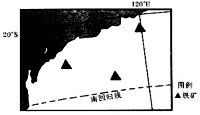(B)
Last week, while visiting my dad with my daughter, we went to a restaurant for dinner. When we were seated, my dad asked the waitress if there were any soldiers eating at the restaurant. Then waitress said there was a soldier having dinner with his friend. My dad told the waitress to tell the soldier and his friend that their dinner was paid for! He also said that he did not want to be known as the benefactor(施主).
Then waitress later commented on my dad’s thoughtful behavior saying that she had never seen anything like this before. At a local college, she had studied opera and so she used this to thank my dad by performing a piece from The Pearl Fisherman. Her voice brought me to tears because it sounded perfect!
After a while, the soldier appeared at our table (I don’t know how he knew my dad paid the bill for him.) and said that he would be sent to the front the next morning and that he could not leave this country without saying “thanks” to my dad. My dad replied that it was he who wanted to say “thanks”. They shook hands as the soldier left.
Before we left, the waitress came by again. She did a magic show as another way to show her “thanks” to my dad. Her show was really great. My dad left her a note with email address asking for her next performance time in addition to a $ 50 tip.
Everyone witnessed something exemplary in the human spirit that night. I can only hope to see more of this in the future.
46. My dad offered help to the soldier and his friend in the restaurant probably because________.
A. he wanted to thank them for all they had done
B. he wanted to know more about then
C. he wanted the waitress to thank him
D. he wanted the soldiers to know his kindness
47. The waitress performed The Pearl Fisherman in the restaurant because____.
A. she was asked to perform to the guests
B. she wanted to show off her wonderful skills
C. she wanted to show her respect and thanks to the author’s dad
D. she wanted to attract more and more guests
48. What did the soldier do in response to the author’s father’s kindness?
A. He gave something to author’s dad.
B. He gave a big tip to the waitress.
C. He said thanks to the author’s dad in person.
D. He did a magic show for the author and her father.
49. The author considered her father’s action to be ____.
A. funny B. understandable C. worthless D. honorable
50. The passage mainly tells us that we should ____.
A. learn to be grateful to others B. find ways to thank others
C. try to learn from each other D. respect soldiers and waitresses
46---50 ACCDA

